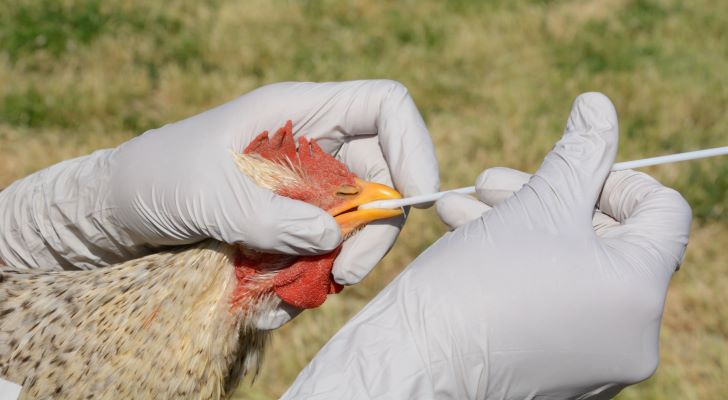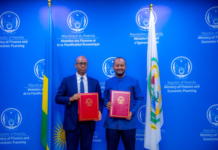The report – called Bird flu: Only major farm reforms can end it – shows that, contrary to popular belief, wild birds are typically victims of the disease rather than the cause, and it is spiralling out of control due to the rise of factory farming. This view is supported by the international Scientific Task Force on Avian Influenza, which was set up to provide governments with recommendations and guidance.
Backed by the very latest scientific evidence and illustrated with powerful images of poultry affected by bird flu around the world from We Animals Media, the report urges governments to implement a three-point action plan which includes:
- Mass vaccination of flocks to slow the spread
- Radical restructuring of the poultry industry, to adopt smaller flocks with lower stocking densities and more robust breeds and avoid clusters of poultry farms to reduce the risk of highly pathogenic strains emerging and spreading.
- Changing the way pigs are farmed as factory farmed pigs can act as ‘mixing vessels’ to create new pig, bird and human viruses.
Today, the animal welfare and environmental NGO has written to governments across Europe, the UK and the US urging them to work with the World Organisation for Animal Health (WOAH) and the United Nations Food and Agriculture Organization (FAO) to implement this action plan without delay.
Tens of thousands of wild birds are reported to have died from bird flu, although the true number is thought to be in the millions. Until recently, the bird flu that circulated in wild birds generally caused them little harm. But when the virus enters overcrowded factory farm poultry sheds – often carried in on workers’ contaminated shoes, clothing or equipment – it can evolve into dangerous Highly Pathogenic Avian Influenza (HPAI).

These factory farms create the ideal conditions for the spread of the disease as they give viruses a constant supply of hosts – allowing infections to spread rapidly – and for highly harmful new strains to emerge.
More than half a billion farmed birds have died or been culled globally due to bird flu since 2021. Many were broilers (meat chickens) confined in factory farms where they are crammed closely together in huge sheds, or egg-laying hens that live confined in cages around the size of an A4 sheet of paper.
Author of the report and Chief Policy Adviser at Compassion in World Farming, Peter Stevenson, said: “Bird flu is like a ticking time bomb. Unless we wake up and take urgent action to end factory farming we will simply be unable to stop its rapid spread across the globe or reduce the risk of a serious human pandemic developing.
“Cramming animals together in factory farms is not only totally inhumane, it’s creating the perfect place for bird flu and other viruses to spread and mutate into more dangerous strains. That’s why our END.IT campaign seeks to end factory farming and transform our global food system to ensure the future health of animals, people and our planet.
“Three key actions are needed to tackle this disease – vaccination, major reform of the poultry industry and an end to the factory farming of pigs. Governments around the world must implement this three-point plan without delay. If they don’t, millions more birds and other mammals are likely to suffer and die and the health of millions of people may be in serious jeopardy.”
Birds are not the only animals affected by avian flu. The disease has already spread to mammals – infecting otters, foxes, dolphins, sea lions, mink, and domestic dogs and cats, amongst others. It has also developed the ability to spread from one mink to another – something it previously had not been capable of in mammals; this makes it far more dangerous. If it develops the same ability to spread between humans, it becomes a real pandemic risk.

At least 875 people have been infected worldwide since 2003. The swine flu epidemic of 2009 and the 1918 Spanish flu outbreak, caused by a flu virus with genes of an avian origin, powerfully highlight the capabilities of zoonotic disease.
Professor Devi Sridhar, chair of global public health at the University of Edinburgh, has said: “The more chances the virus has to jump into a human and mutate, the more likely it is a dangerous strain will emerge that could set off the next pandemic.”
This view is supported by a joint statement from the UN’s Food and Agriculture (FAO), World Organisation for Animal Health (WOAH) and the World Health Organisation (WHO) in July 2023 which said: “Avian influenza viruses normally spread among birds, but the increasing number of H5N1 avian influenza detections among mammals—which are biologically closer to humans than birds are—raises concern that the virus might adapt to infect humans more easily.”
Compassion in World Farming’s END.IT campaign is building a global movement to end factory farming and transform our global food system to ensure the future health of animals, people and our planet. To sign the petition visit www.END.IT








